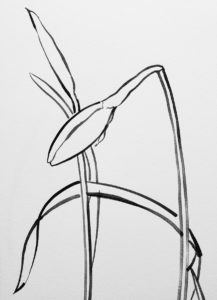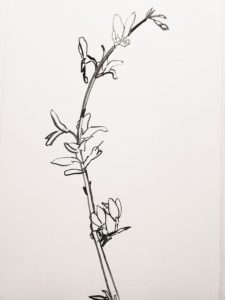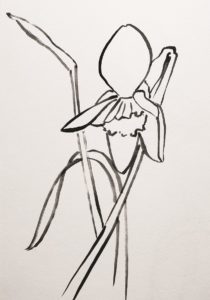Around his fourth birthday, my son, Noah, started asking probing questions about life and death. It began innocently enough. He wanted to know if he would become a baby again. But from there, things quickly grew existential.
We explained that, no, he wouldn’t ever be a baby again, even if crawling into fetal position in our laps continues to be part of his morning ritual. Then he wanted to know if my wife and I would become kids again. Again, the answer was disappointing.
What really frustrated him was our answers to his questions about where he was when his older sister was a baby. He noticed his conspicuous absence from her baby pictures. I told him he didn’t exist when Malina, who is seven, was born. That did not go over well. “But where was I?” he insisted. “You were nowhere” did not satisfy him.
Over the next few weeks, he started sketching out an overview of the human life cycle through his Socratic questioning. It coincided with a trip my wife and daughter took without us, leaving Noah and me behind to hash out life’s big questions. Maybe that was a jolt to his security. Without his mother and sister around, he wanted to know just how solid was the ground he stood upon.
 “Daddy, will you still be my dad when I am a grown-up?” he asked one January night, sitting at the table eating a bowl of strawberries. I replied that, yes, I would always be his dad but that someday I would die. He was astonished. A few days earlier on the way to his Montessori preschool in Wellfleet, he had asked me where people go when they die. Conveniently, we were passing Duck Creek Cemetery. “They’re over there,” I had told him, “under the ground.” I thought now was a good time to follow up. “We will all die someday,” I explained.
“Daddy, will you still be my dad when I am a grown-up?” he asked one January night, sitting at the table eating a bowl of strawberries. I replied that, yes, I would always be his dad but that someday I would die. He was astonished. A few days earlier on the way to his Montessori preschool in Wellfleet, he had asked me where people go when they die. Conveniently, we were passing Duck Creek Cemetery. “They’re over there,” I had told him, “under the ground.” I thought now was a good time to follow up. “We will all die someday,” I explained.
Perhaps a better parent could have introduced the topic more gently, but really, how delicate can one be on the subject of death? It’s a cruel, stinging reality. Although Noah had been contemplating death in the abstract, he had never taken it personally as the destination of us all.
He flinched. “I don’t want to die!” he cried, running to my arms. I hugged him and he wept, repeating, “I don’t want to die.” It was the cry we all experience when someone we love leaves us forever. Each time, death is a shock. We’re like an inconsolable four-year-old, unable to bear death’s reality.
As we enter this season of rebirth, the news around us feels anything but hopeful. The whole world watches the war in Ukraine, every horrifying moment detailed on our phones and computer screens. For many — especially those close to the conflict — this sorrow must feel like a full stop, and glib appeals to hope an offense. Yet, where else can we go?
Faith is not always easy, and when it’s hard to muster, spring has a way of showing us that rebirth and resurrection are part of life, just as much as death and suffering. The salt marshes, brown and barren, will start producing new shoots soon. The trees are budding, and flowers are beginning to bloom after a winter that didn’t want to end.
And Noah, for his part, eventually stopped crying, putting death out of his mind as he returned to his bowl of strawberries, relishing the small pleasure of sweet fruit. But life is no longer just a bowl of strawberries for Noah. He’s taken to occasionally interrupting his play and filling his mother in on our conversations with pronouncements like “We’re all going to die,” before going back to his Legos or running around the yard, the grass below him starting to green.



